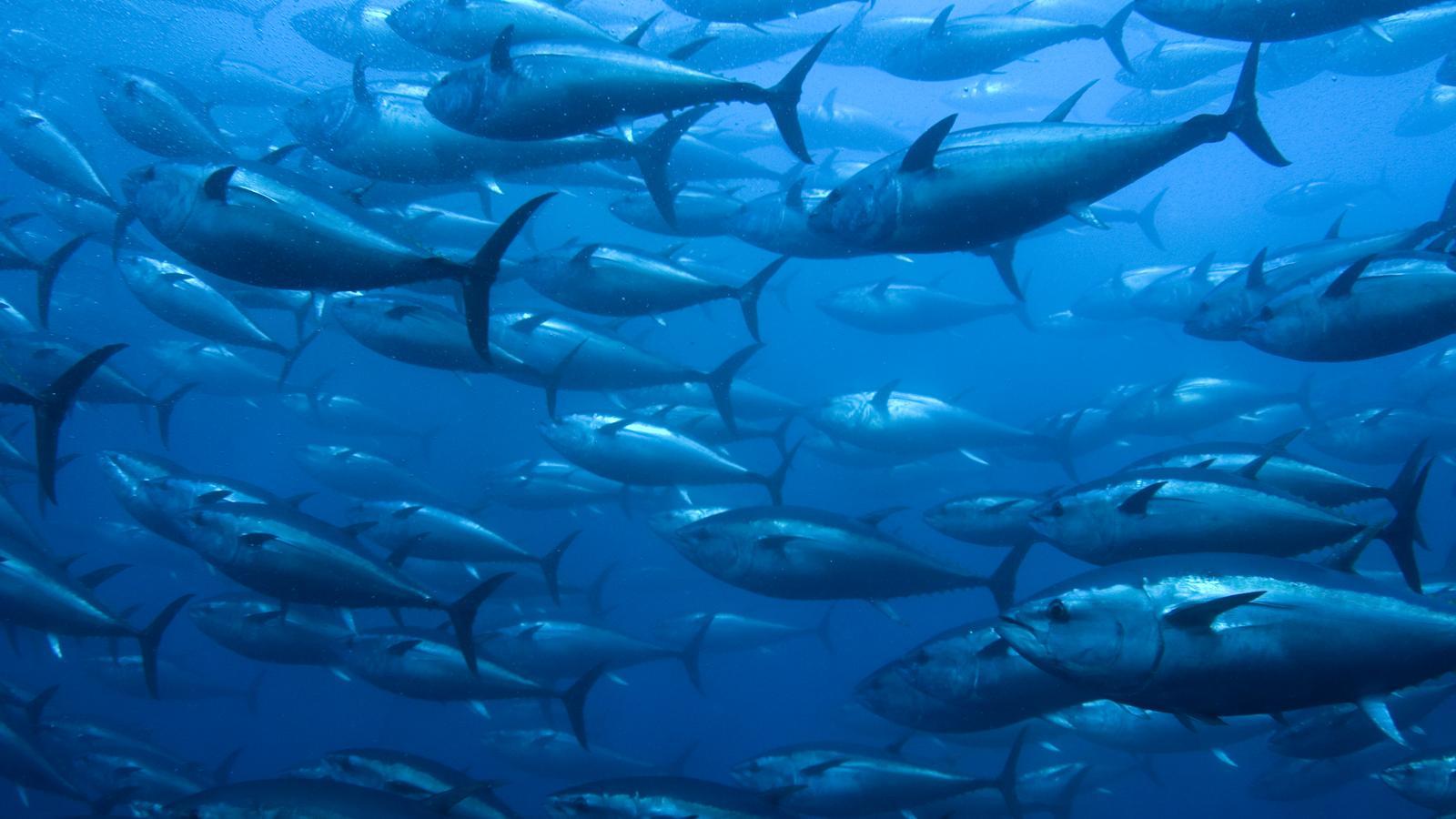Should we stop eating tuna (as some French school cafeterias will do)?
The recommendation of researchers such as Miquel Porta of the Hospital del Mar in Barcelona is to eat one serving a month, but not to prohibit it.


Paris and seven other French cities have banned children eat tuna in school cafeteriasThe reason is scientific and well-known: this fish, which is caught when it weighs more than thirty kilos, can contain heavy metals, such as mercury, which can be passed into the human body through ingestion. The Catalan Food Safety Agency has been warning for years, of tuna and large fish in general, and that is why it has always recommended that pregnant women and children do not eat them so that mercury, once in the human body, is not eliminated and can affect neurocognitive development.
Now, with the news affecting school cafeterias in France, the debate is open again, and It once again puts the spotlight on tuna, but also on swordfish and emperor fish., to mention three fish that are caught when they are large in size and, therefore, when they may have accumulated heavy metals, something that is not considered to occur when the fish are small.
"A tuna can weigh up to four or five hundred kilos when caught, so the maximum permitted limit for contaminants is already exceptional in this case, as it is one milligram per kilo," explains scientific researcher Anna Bozzano. To understand the maximum permitted limit for tuna, which is the same for mud and rock tuna, bonito, emperor tuna, and sharks, it is necessary to compare it with the maximum permitted limits for other fish. In the case of cephalopods, anchovies, mackerel, sardines, and sole, it is 0.3 mg per kilo, while for everything else, it is 0.5 mg/kg.
So, tuna are the ones in the eye of the storm, but in reality, all fish bioaccumulate heavy metals. Why do they do this? "Because humans release them into the sea, through industry or transportation, or because they are naturally present in the sea because they form," says Bozzano. Since ingesting them is inevitable, also through the air we breathe, the recommendation is not to overeat fish that may contain higher amounts, and in the case of infants and pregnant women, to always avoid it.
The intake, once a month
At the Hospital del Mar in Barcelona, researcher Miquel Porta recommends that "children under 12 should eat less than 50 grams per week, which could be a single serving per month," he says, adding that the recommendation should gradually lead to a change in habits among the general population. If information is needed that large fish accumulate heavy metals, and that therefore small ones should be preferred, "there will be no need to impose restrictions, because they can be given once a month, and then the danger disappears, which exists when there is continuous intake," the researcher affirms.
Thus, the harmful effects could appear due to accumulation in our bodies, which can occur when we have eaten lead over a long period of time and consistently. "In children, it has been clinically proven that there may be implications for neurocognitive development, and that is why the recommendation is so important," comments Miquel Porta, who believes that disseminating knowledge is the most important thing for the population to change their intake habits. "Globally, we have achieved great successes, such as the elimination of another heavy metal, lead, from gasoline," he explains. When lead was present in gasoline, people breathed it in, and therefore it entered the bloodstream. "It has been a great victory that everyone was aware, and now there is no country in the world that has leaded gasoline, so lead has disappeared from babies' bodies," the researcher notes.
In the case of lead in gasoline, it was a ban; in the case of tuna, in our country, it is a recommendation of moderation, led by the Catalan Food Safety Agency, which has other consequences, such as diversifying the intake of other fish. "I would recommend saving on unnecessary food purchases, especially processed foods, and spending money on a variety of fresh fish," says the Hospital del Mar researcher.
In this sense, scientist Anna Bozzano maintains that sustainability in fish consumption depends on variety, which is precisely the magazine Nature has been linked in a study last May with nutritional benefits"Diversity when buying and eating fish has always been a sustainability tip, but now there are scientific reasons that assure us it's good for our health because the more variety, the more nutrients we get from them," says Bozzano, who concludes that the study shows that consuming a variety of products provides more than just one fish. And, incidentally, there's another benefit linked to improving human nutrition: diversity reduces fishing pressure on aquatic ecosystems, so there may be more nutritious alternatives available if one is in short supply. And at this point, we enter another debate, which is about nutritionally assessing all species and not always focusing on the same ones. There's no fish that isn't good; all are, but they're especially good when they're part of a diet that alternates its varieties. The greater the diversity, the better.
